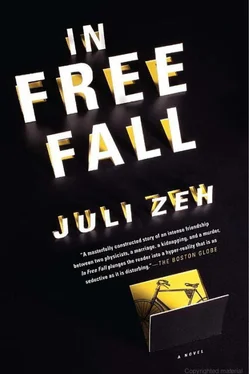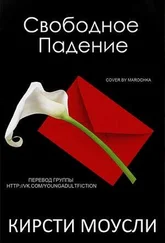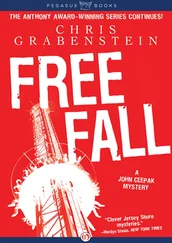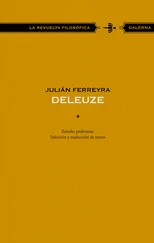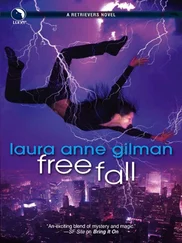IT IS ALMOST DARK NOW. The streetlamp in front of the house has failed to go on, and will now stay unlit through the night. The mountains have sent a tawny owl as their night time spy; it is sitting somewhere in the branches of the chestnut tree, calling sorrowfully as if through cupped hands. Cutlery lies crisscross on the plates. Liam’s head is nodding slowly to the beat of his drowsiness. With his legs crossed and his arms folded, Oskar looks as if he is posing for a black-and-white photograph. Before the scene can freeze into a tableau, he stretches his back and draws breath into his lungs. It’s clear that he is going to make an announcement. He runs his hand through his perfect hair and taps another filterless cigarette out of the packet.
“Before, we would probably have met at daybreak in some forest clearing,” he says to Sebastian.
Liam’s head jerks up, curiosity stealing over his sleepy face, while Sebastian finds his way out of his own thoughts with some difficulty. Finally he realizes that the darkness in the room is not due to his confusion, tips back in his chair, and switches on the overhead light. Maike suppresses a yawn and begins collecting cutlery halfheartedly on one of the plates.
“Nowadays,” Oskar says, looking at his unlit cigarette from all angles, “there are microphones and TV cameras in forest clearings.”
“You’re talking in riddles,” Maike says, a yawn forcing its way out as she finishes her sentence.
Oskar puts the cigarette down on the table still unlit, folds his napkin, and continues speaking to Sebastian.
“TV,” he says. “The media. You like that, n’est-ce pas ?”
There is something frightening in his voice that finally wipes the dreaminess off Sebastian’s face. “What are you thinking of?”
“ZDF started a new science show some time ago— Circumpolar ,” Oskar says, standing up. “I’ve agreed that both of us will go on it. We’re going to Mainz tomorrow evening.” He is by the door now, raising a finger. “At eleven p.m. exactly. It’s live.”
Liam’s excited whoop gives Oskar the opportunity to leave the room. The boy runs excitedly around the table and grabs Sebastian by the shirt. At the same time, Maike has run to the open window. She is shooing a fluttering something back into the darkness.
“That was a tawny owl!” she shouts. “Did you see that? Unbelievable!”
“Daddy,” shouts Liam, “are you going to be on TV?”
“It feels more like I’m going to war.”
The bathroom door slams shut. Sebastian tries to catch Maike’s eye but she is still hanging half out of the window, looking down at the impossible bird. The last thing Sebastian feels like doing is laughing, but then his stomach begins to twitch. A laugh rises up in him like bubbles of air and shakes Liam’s small body, which is leaning on his. When Sebastian hears the sound of his own laughter, he realizes that the die has been cast. Oskar has reckoned with Sebastian’s pride, and has engineered everything so that it is impossible to refuse the challenge.
“You scoundrel!” he shouts down the hall.
Why this ridiculous word has occurred to him, he cannot say.
THERE ARE THREE EMPTY WINE BOTTLES left on the table. The window is closed and moths are flinging themselves against the glass. The grown-ups have moved to the living room; two rooms away, Liam is practicing insomnia. Low music weaves through the smoke curling up to the ceiling. Sebastian is sitting on the sofa, cradling an amber splash of whiskey in a tumbler, relishing the burning sensation in his stomach, not knowing if it is due to the whiskey or to happiness. Oskar and Maike are dancing, limbs heavy from the wine and from fatigue. Her eyes are closed and her cheek is on his shoulder. Sebastian looks on, feeling himself sink into the upholstery. His free hand scrabbles in the sofa cushions, as if searching for a lever that will stop this moment from disappearing. It is the last evening of happiness in this apartment, and it is a mercy—for Sebastian more than for the others—that humankind is not able to see into the future.
CHAPTER 2, IN SEVEN PARTS
The first half of the crime is committed. Man is everywhere surrounded by animals.
IT IS EARLY EVENING ON SUNDAY, two days later. Under a sky like this, Sebastian thinks, the world looks like a snow globe lying forgotten on God’s shelf, not shaken for a long time. His eyes and his arms are tired, so he has opened the car window a little. The breeze tugs at his hair and his shirt. Outside, meadows drenched in rich light roll by and utility poles stand proudly next to their long shadows. The winding road resembles a painted landscape, and it manages to look like ski country even in the summer. On the horizon, the slopes have been cleared—only a few pine trees remain in forlorn clusters. Wire mesh holds back the scree where the mountain encroaches upon the road. In the ditch lies a black cat who had the bad luck to cross the street from the left.
When Sebastian is not looking at the landscape, he rests his eyes on the line in the middle of the road. Its white dashes fly toward him, then strangely slow before disappearing one by one under the car. The longer he looks at them, the more he thinks he hears a sound like quiet footsteps—the passing of time.
Last night he slept no more than two hours. Having finally fallen asleep at about four, despite a pounding heart and sheets drenched in sweat, he was woken at six by a tetchy Liam demanding his full attention for the results of a calculation: In twenty-six hours, thirteen minutes, and approximately ten seconds at the latest, he shouted, he would be with the scouts in the woods!
Sebastian woke with the feeling that he had survived a disaster that he could not remember. But he had to smile at Liam’s excitement, and at the “approximately.” He could imagine how his son had sat down with pen and paper to work out the exact number of seconds, which, at the moment he recorded them, trying to fix them in place, became no longer right. As Sebastian swung his feet out of the bed and placed them on the floor, the memory of the previous evening returned and settled on his shoulders like a cloak of lead. The radio in the bathroom spat out a cacophony of sounds when he pressed the button, as if the noise had been stored up overnight. Fearful that he would hear his own name coming out of the speaker, he switched it off immediately. In the shower, he turned the hot water up to full. As the steam hit the glass, he told himself over and over again, arguing rationally, that nothing terrible had happened. Circumpolar had a relatively small audience, and his colleagues at the institute did not watch popular science programs. In any case, no one would take what had happened as bleakly as he did. Now no one could remember anything for more than a couple of days anyway, especially if they had seen it on television.
A stone’s throw away from the road, a fleet of shiny boats with horned figureheads glides over a sun-dappled lake. After a moment of confusion, Sebastian suddenly sees some deer—“Look, Liam! On your left!”—walking through a golden field of rape. And they’re gone. Trees hug the edge of the road Sebastian has taken. The air smells of mushrooms, earth, and a rain that has not fallen for weeks. Sebastian is gripped by the desire to keep driving toward the south, as if the south is a place one can reach. He tries to whistle a tune— “I haven’t moved since the call came” —but the sounds from his lips bear absolutely no relation to the melody in his head.
HE CALLED MAIKE IMMEDIATELY AFTER THE PROGRAM. He had not said good-bye to anyone, but had gone straight to the cloakroom to get his bag and wandered the corridors of the television studio looking for the exit. When he finally got reception, he called the apartment in Freiburg and listened, astounded, to Liam’s excited whoops and Maike’s cheerful voice. “That was really something!” she laughed, but changed her tone as soon as she realized the state Sebastian was in. She searched for words of comfort, but did not grasp the seriousness of the situation. The noise on the set meant that Maike had noticed nothing more than a heated scientific disagreement. Sebastian was giddy with relief. He decided to drive back to Freiburg instead of staying the night alone in the hotel in Mainz. For three hours he drove blindly on the autobahn, his brain churning relentlessly in an attempt, after twenty years, to analyze Oskar’s personality, Oskar’s character, Oskar’s state of mind, and his entire nature from a completely different angle. He did not get very far. He found it difficult to concentrate and kept arriving at the same conclusion, like coming up against a wall: people like Oskar see life as a game that they have to win.
Читать дальше
